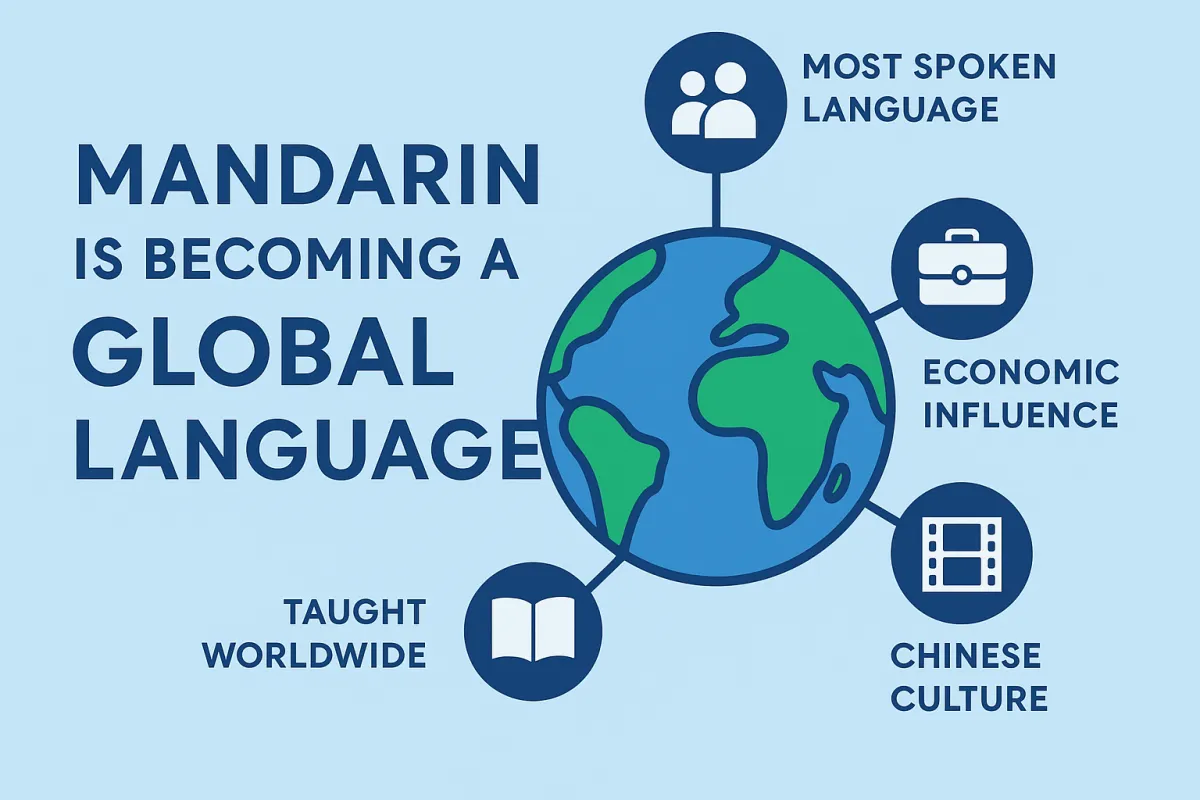
Why Mandarin Is Becoming a Global Language?
Why Mandarin Is Becoming a Global Language
As the world becomes more connected, certain languages gain prominence—not just because of how many people speak them, but because of their economic, cultural, and diplomatic influence. Mandarin Chinese is quickly becoming one of those languages.
Here’s why Mandarin is no longer just a "Chinese language," but a rising global powerhouse.
🌍 1. Most Spoken Language by Native Speakers
With over 900 million native speakers, Mandarin is the most spoken first language in the world. Learning it gives you access to one of the largest populations on Earth, not just in China but in Mandarin-speaking communities worldwide.
💼 2. Economic Influence of China
China is the second-largest economy in the world and a global leader in:
Manufacturing
E-commerce
Technology
Infrastructure
Mandarin is increasingly becoming the language of business, especially across Asia and Africa. Companies that want to tap into Chinese markets need Mandarin-speaking talent.
🏫 3. Mandarin Is Taught Worldwide
From public schools in the U.S. to language centers in Europe and Africa, Mandarin is one of the fastest-growing second languages taught globally.
Governments and educators recognize that Mandarin fluency is a strategic skill for future careers and international communication.
🎬 4. Global Rise of Chinese Culture
Thanks to streaming platforms, Chinese dramas, movies, and music are gaining global audiences. Shows like “The Untamed” and artists like Jay Chou and Jackson Wang are helping Mandarin cross borders—just like K-pop did for Korean.
Language learners are often drawn in by pop culture, and Mandarin is next in line.
🤝 5. Diplomatic and Political Relevance
Mandarin is one of the six official languages of the United Nations, and China is deeply involved in global diplomacy, aid, and infrastructure projects like the Belt and Road Initiative.
As more countries partner with China, speaking Mandarin becomes a valuable diplomatic asset.
💡 Final Thoughts
Mandarin is no longer just useful for China—it’s becoming essential for global citizens, entrepreneurs, educators, and students everywhere.
By learning Mandarin today, you’re not just picking up a new skill—you’re preparing for a future where understanding China means understanding the world.
